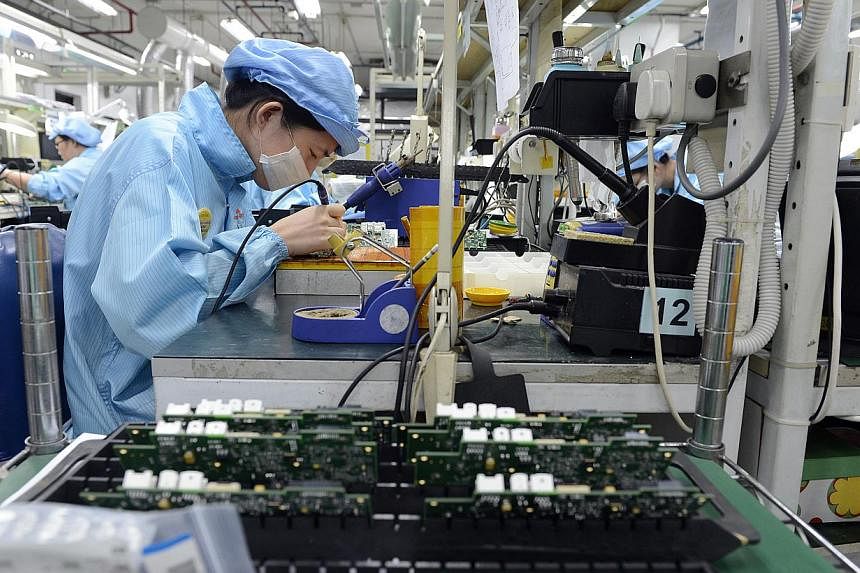Blue-collar workers had the most to cheer about last year.
The 5.4 per cent increase in basic pay that rank-and-file workers received last year was their highest in 16 years, according to the latest Ministry of Manpower (MOM) report on private sector wages released yesterday.
It was also the first time since 2002 that their increase in basic pay was proportionately higher than that of white-collar workers. The wage growth was fuelled by a tight labour market and economic growth, the ministry said.
The MOM report is based on a survey of around 4,900 private- sector companies with 10 or more staff between December last year and February this year. It takes into account the wages of full-time workers among citizens and permanent residents.
Overall, total wages in the private sector - including bonuses and employers' Central Provident Fund contributions - grew by 5.3 per cent last year, up from 4.2 per cent in 2012.
Taking inflation into account, salaries rose 2.9 per cent last year, after dipping 0.4 per cent in 2012.
The ministry also released data yesterday to show that although labour productivity fell 1.4 per cent in 2012 and 0.2 per cent last year, while real total wages rose 0.5 per cent and 3.4 per cent respectively in those years, the 10-year trend was less alarming.
From 2003 to last year, labour productivity rose 1.4 per cent each year, while real total wages grew 1.5 per cent per year. "Growth in real wages (was) broadly in line with labour productivity over the long term," said MOM.
In its report, the ministry noted that more companies - eight out of 10 last year compared to six in 10 in 2012 - gave workers earning below $1,000 a month a pay hike, a point which it first made when the National Wages Council released its wage guidelines last week.
National Trades Union Congress assistant secretary-general Cham Hui Fong urged companies to boost productivity so that workers can get higher pay.
Economists expect wages to continue rising this year. "Real wage growth should be sustained this year, especially since inflation is subsiding," said OCBC economist Selena Ling.
SIM University associate professor Randolph Tan added that nominal wages could go up by between 6 per cent and 10 per cent this year.
Member of Parliament Zainudin Nordin, who chairs the Government Parliamentary Committee for Manpower, noted that the latest wage report is very encouraging. "It shows that our efforts to boost the pay of low-wage workers and contain inflation are showing results," he said.

